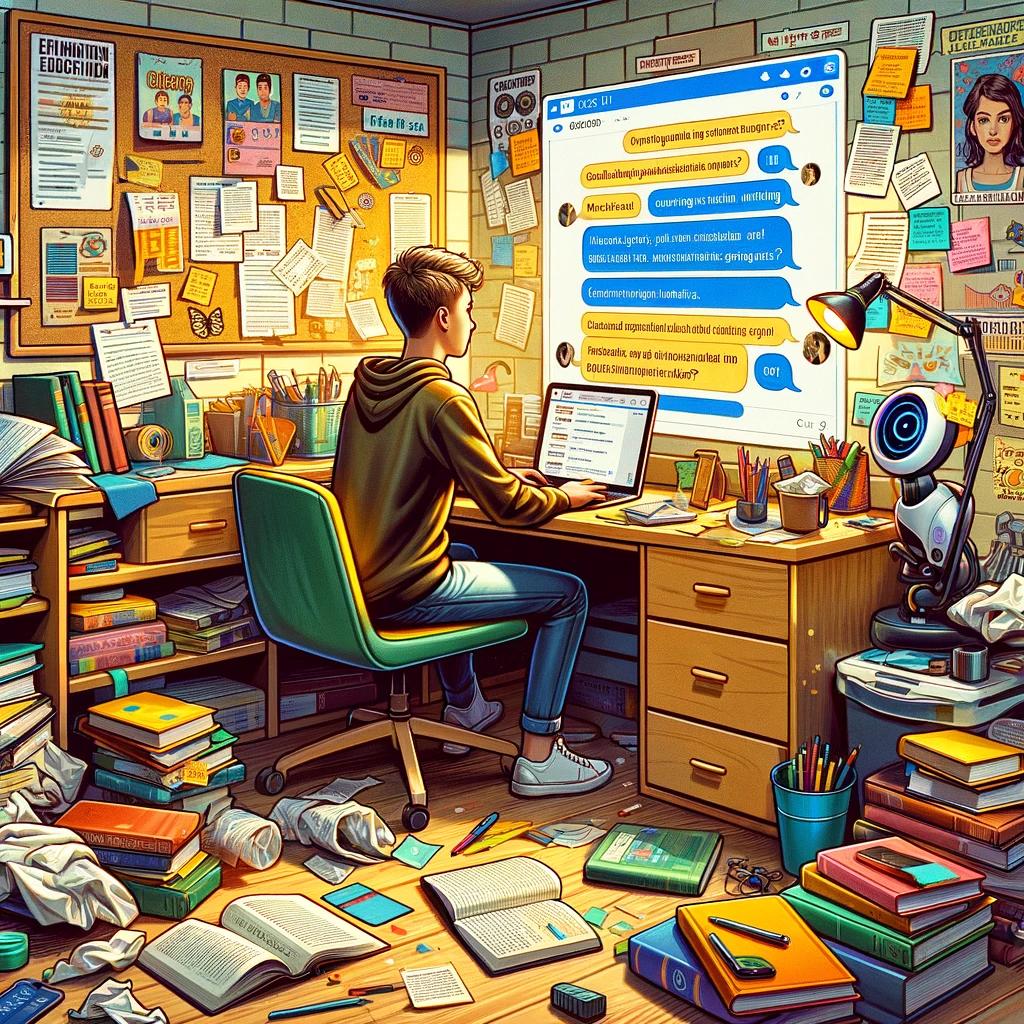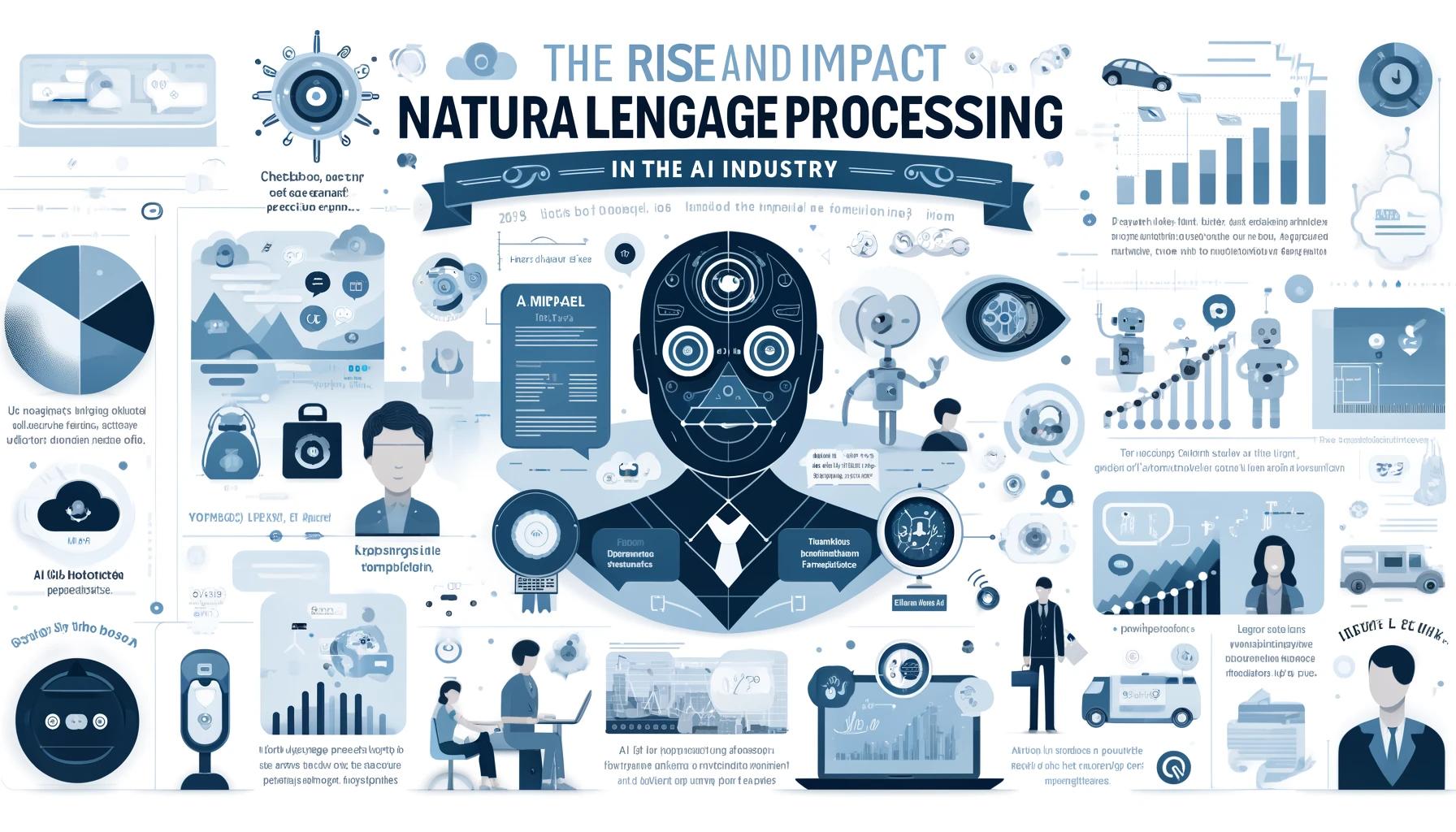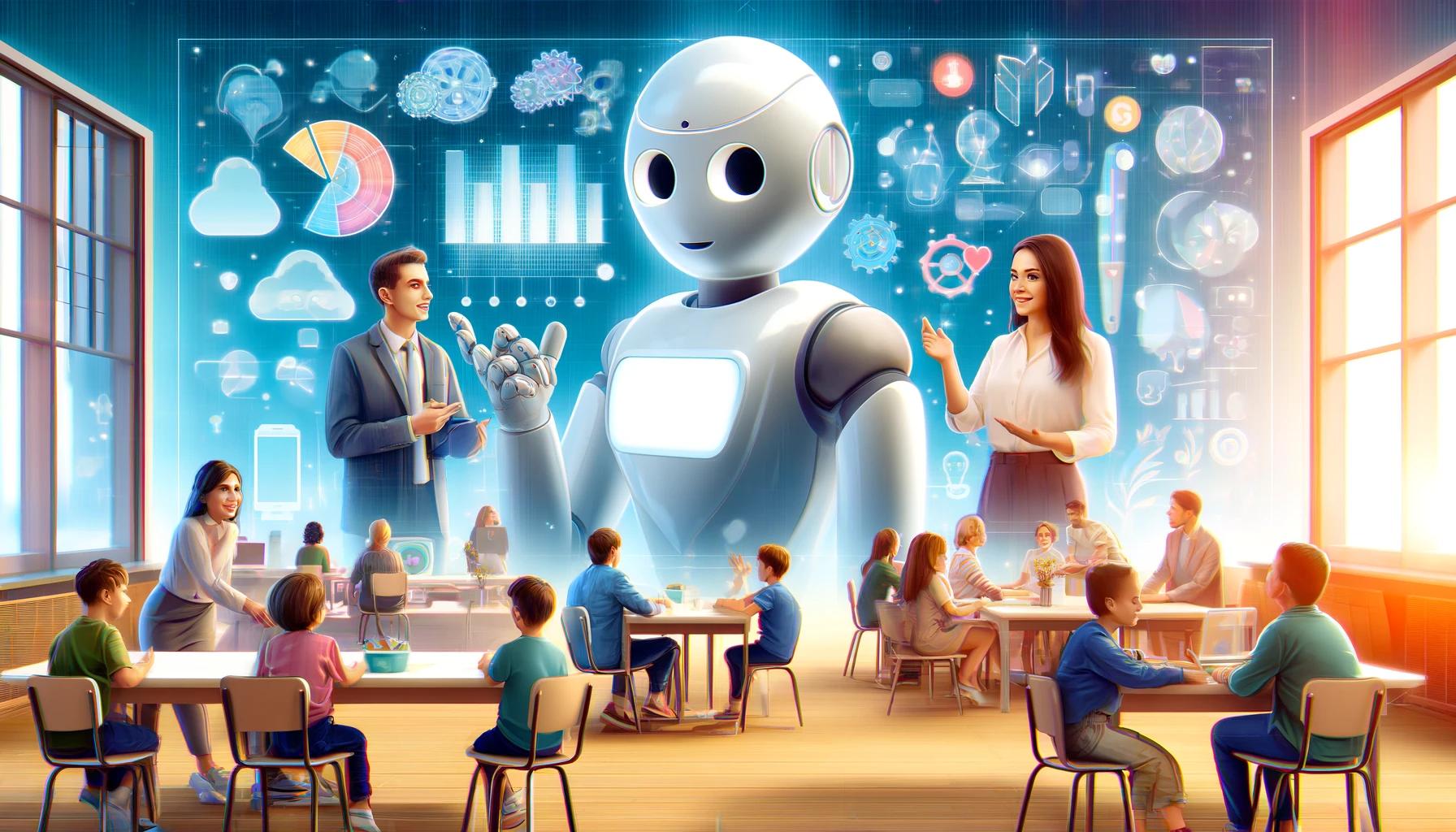To Chat or Not to Chat: Evaluating AI Teaching Assistants' Role in Learning Environments

In the rapidly evolving landscape of education, the integration of AI technology, such has become increasingly prevalent. One such innovation gaining traction is the utilization of ChatGPT as a tool for undergraduate studies. This article delves into the advantages and drawbacks of incorporating ChatGPT, an AI in education, into the academic journey, exploring its impact on learning outcomes, efficiency, and student engagement.
Pros:
-
Enhanced Learning Experience: AI in education, such as ChatGPT, offers students personalized learning experiences tailored to their individual needs and learning styles. By providing instant feedback and explanations, it fosters deeper understanding and retention of course material.
-
Accessibility: ChatGPT serves as a virtual AI tutor, accessible 24/7, allowing students to seek assistance whenever they encounter difficulties, irrespective of time or location. This accessibility breaks down barriers to learning and accommodates diverse learning schedules.
-
Augmented Problem-Solving Skills: Through platforms like PhotoMath, AskSia, which leverage AI capabilities, students can receive step-by-step solutions to mathematical problems, aiding in the development of critical thinking and problem-solving skills.
-
Efficiency: Integrating ChatGPT into undergraduate studies streamlines the learning process, enabling students to quickly clarify concepts, review materials, and tackle challenging assignments, thereby optimizing study time and productivity.
-
Adaptability: AI-powered educational tools can adapt to students' progress and preferences, offering customized learning paths and adaptive resources to cater to individual strengths and weaknesses, ultimately promoting self-directed learning.

However, we have to admit AI learning assistants can sometimes bring distractions to study. Students may over-rely on technologies and teachers may be concerned about academic integrity.
Cons:
-
Over-Reliance on Technology: The reliance on ChatGPT and similar AI tools may lead to over-dependence, potentially diminishing students' ability to think critically and independently solve problems without external assistance.
-
Quality of Assistance: While AI tutors like ChatGPT offer immediate support, the quality of assistance may vary, depending on the complexity of the query and the comprehensiveness of the AI's database. Students may encounter limitations in receiving nuanced explanations or guidance for specialized topics.
-
Privacy and Data Security: Integrating AI technology into education raises concerns regarding data privacy and security. Students' interactions with ChatGPT may involve sharing sensitive information, prompting apprehensions about data breaches and misuse of personal data.
-
Potential for Academic Dishonesty: The ease of access to AI-powered solutions, such as PhotoMath, poses a risk of academic dishonesty, as students may resort to using these tools to circumvent the learning process and plagiarize solutions without genuine comprehension.
-
Technical Issues and Dependence: Reliance on ChatGPT for academic support is contingent upon stable internet connectivity and the functionality of the platform. Technical glitches or downtime may disrupt students' access to assistance, leading to dependence-related challenges.
Conclusion
In conclusion, the integration of ChatGPT and AI in education presents a myriad of benefits and challenges for undergraduate studies. While it enhances learning experiences, fosters accessibility, and augments problem-solving skills, it also poses risks of over-reliance, quality concerns, privacy issues, academic dishonesty, and technical dependencies. Thus, educators and students must navigate these pros and cons judiciously to harness the full potential of AI technology in enhancing undergraduate education.
Reference
AI in Education: Pros and Cons
ChatGPT in Higher Education](https://www.hurix.com/chat-gpt-pros-and-cons-of-using-chatgpt-in-higher-education/)










